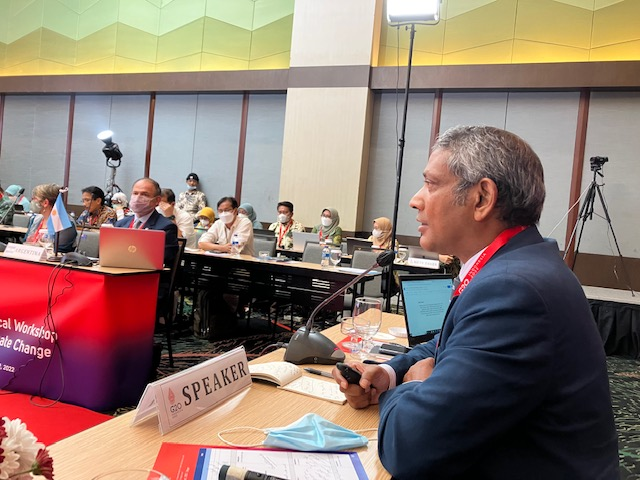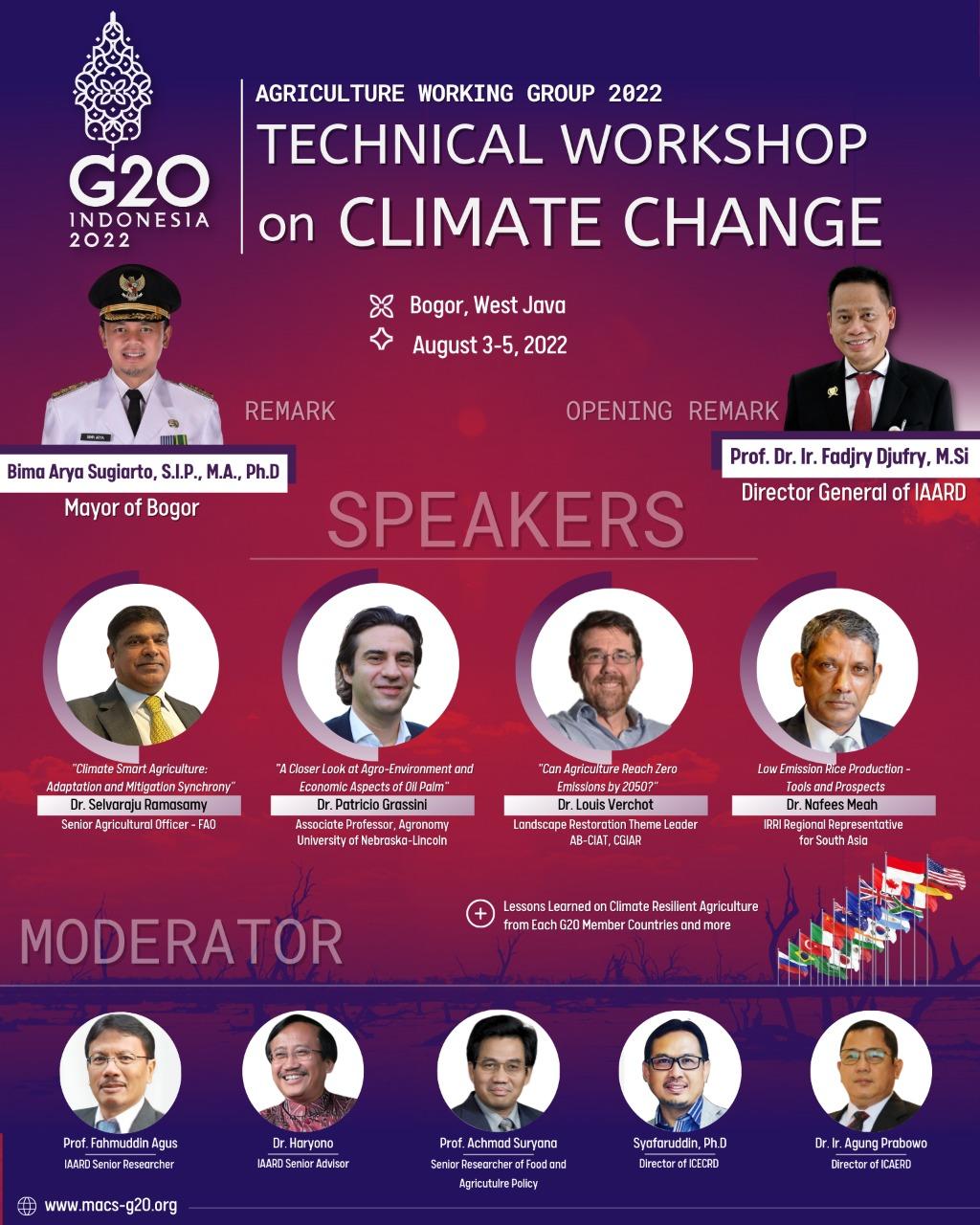Blog G20 Indonesia 2022, Technical Workshop on Climate Change

As part of the Indonesian G20 Presidency, the Meeting of Agricultural Chief Scientists (MACS) of the G20 countries organized a Technical Workshop on Climate that was hosted by the Indonesian Agency for Agricultural Research and Development (IAARD) in Bogor from 3-5 August 2022.
The workshop focused on “Climate change and lessons learned on climate resilient agriculture from each G20 country members” and saw the participation of a large CGIAR delegation led by Louis Verchot (Dr.), Principal Scientist for Landscape Restoration, who attended in person as technical expert. The delegation also included Nafees Meah (Dr.), Regional Representatives for South Asia and Hasil Sembiring, Country Representative for Indonesia, IRRI/CGIAR and online participation by Gianpiero Menza (Dr.), Senior Partnerships and Innovative Finance Officer – Alliance/CGIAR, Ciniro Costa Junio (Dr.), Climate and Food Systems Specialist and Lini Wollenberg (Dr), Climate Senior Scientist.
Dr. Verchot delivered a technical presentation titled “Can Agriculture Reach Net Zero Emissions by 2050?”
Agricultural production produces about 11% of GHG emissions, and deforestation and land clearing – primarily for expanding agricultural production – produces another 12 % of GHG emissions. While the CO2 emissions represent 13% of global CO2 emissions, agricultural production is responsible for 44% of global methane emissions – the second most important GHG – and for 81% of nitrous oxide, which is 265 times more potent than CO2. So, finding sustainable development pathways with lower emissions is a priority for many countries.
Research and practice have demonstrated that significant GHG emissions reductions in agriculture are achievable through reducing emission intensity of production, but population growth and dietary changes may offset absolute emissions reductions, which is a real problem.
A study conducted at ILRI/CGIAR on reducing methane from enteric fermentation during digestion and demonstrated that management practices that decrease GHG intensity (emission per unit meat or milk) have a beneficial effect on animal performance (weight gain or milk yield). Practices that reduce absolute methane emissions mostly have small or no negative impacts on animal performance.
Mitigation of soil nitrous oxide emission is another example of an opportunity to reduce emissions. Emissions of this gas are driven by nutrient management and fertilizer additions, and in particular, the amount of nitrogen added to soils in excess of crop demand. Scientists at CIMMYT/CGIAR have demonstrated that improving nitrogen use efficiency and reducing excess nitrogen additions by 75% could reduce global nitrous oxide emissions by 35% globally.
Even with widespread adoption of low-emissions agricultural practices, net zero agriculture cannot be achieved without sinks. Land-based sinks through reforestation, agroforestry, wetland restoration, soil carbon sequestration and other sinks offer a wide range of possibilities. The value of forests in absorbing atmospheric CO2 increases is under appreciated. It is counted the carbon that is released when we cut a forest, but it is not counted the carbon that was not absorbed if the forest had been left to grow.
Dr. Verchot commented that “The meeting in Bogor was an opportunity to share experiences and the latest information related to approaches for scaling up and out of climate-smart and practices for sustainable agriculture and facilitate international collaboration among the G20 members, international organizations, and invited countries.”
A final element raised by Dr. Verchot was that the “technological solutions exist today, and we still need technological innovation in the future to simultaneously ensure food and nutrition security and reduce food system GHG emissions to net zero. However, many good ideas often remain at the conceptual or pre commercial stage and their adoption and scaling needs to be supported. Governance, economics, and sociocultural factors are the keys to low emissions food system transformations."

